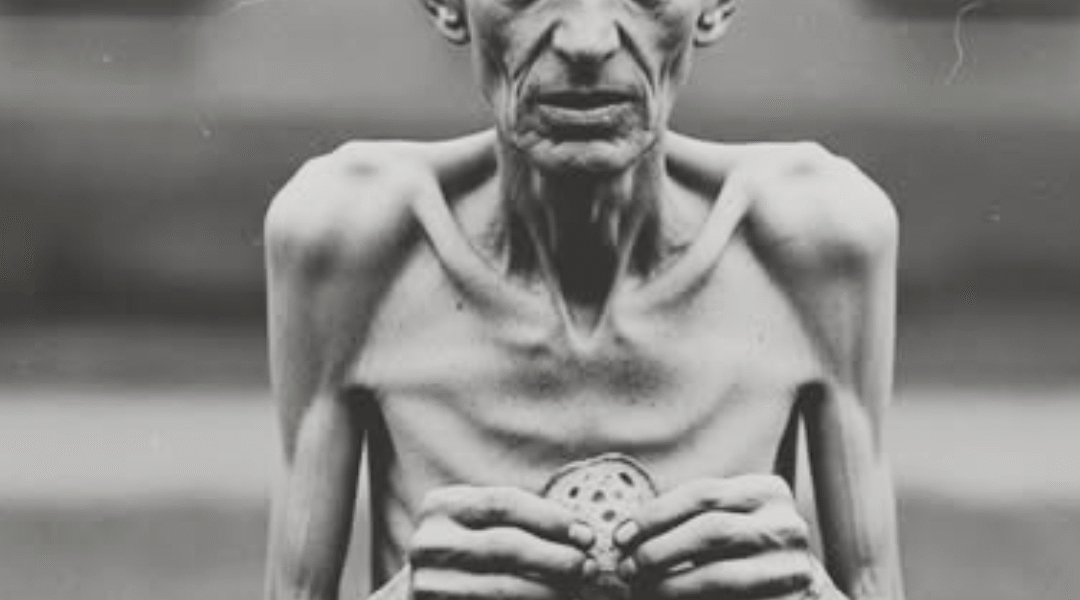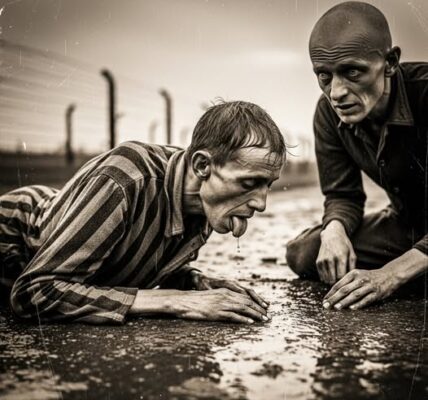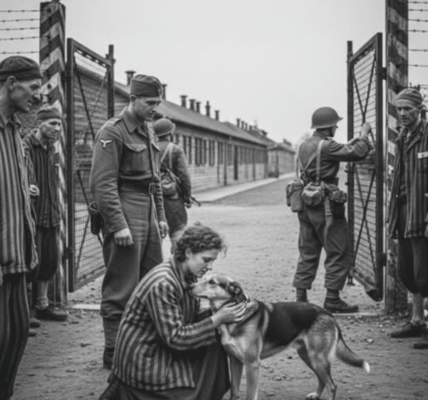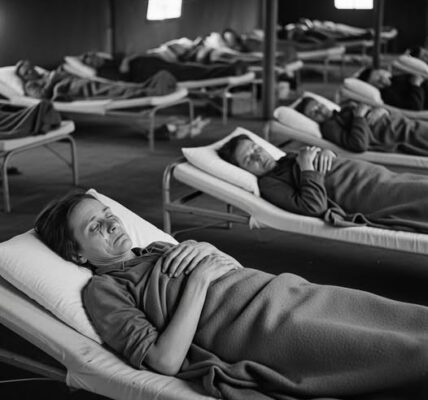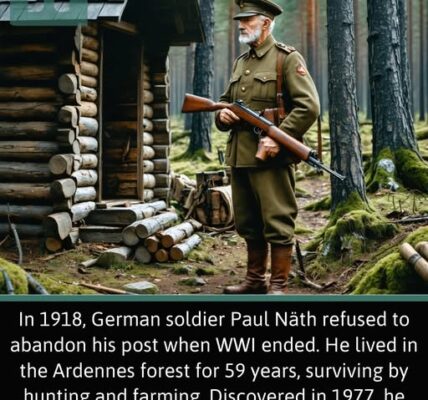Bread from Sachsenhausen: A Story of Hope Stronger than Hunger

In Sachsenhausen, hunger had a smell, a texture, almost a voice. Each morning, prisoners awoke with aching ribs, empty stomachs, and their eyes fixed on their ever-diminishing food ration. Bread, a simple word that in normal life signified companionship and the warmth of home, here became an obsession, a daily torture. What had once been a staple food in the camp universe transformed into currency, a weapon of survival, and sometimes even a last spiritual refuge.
Among these exhausted men was a prisoner whose figure seemed so frail that one might have thought a gust of wind could carry him away. His skin clung to his bones, his eyes glittered with a strange fever, but his gestures remained composed, imbued with a discipline that astonished those around him. Each evening, when it came time to share his meager portion of black bread, he tore off a tiny, almost invisible piece. While his companions devoured theirs in seconds, he slipped it into his pocket, protecting it like a relic.
His barracks mates, themselves condemned to survive this hell, didn’t understand such a gesture. “Why deny yourself?” they asked him. “Why leave to the cold and mold what your body so desperately craves?” The man smiled faintly, his lips always whispering the same phrase: “This is for my son, when I see him again.”
These words fell into the silence like a prayer. Because in a concentration camp, hunger wasn’t just physical; it also tormented minds, erased memories, reduced people to animalistic warfare. And yet this father refused to succumb to this logic. His small piece of bread, which he never ate, became a daily ritual of resistance, a silent vow. Where others saw simple food, he saw the future, a dream meeting behind barbed wire.
Sachsenhausen, a concentration camp near Berlin, was designed to crush bodies and destroy souls. Every stone, every watchtower, every order barked by the guards was an assault on human dignity. Yet in this place where humanity seemed to vanish, small gestures retained their luster. This prisoner’s bread was not merely a morsel of salvaged food: it was an offering, a symbol that defied the logic of death.
As the weeks passed, hunger only deepened the prisoners’ shadow. Faces sank into darkness, voices weakened, bodies collapsed in the mud of endless roll calls. But each night, despite exhaustion, the man repeated his gesture. His bony fingers tore open the portion, his eyes closed for a moment, and the fragment returned to its hiding place. In this way, night after night, he wove an invisible thread between himself and the child he hoped to hold again.
In 1945, as the Allies approached and chaos descended upon the camp, many prisoners died in the final weeks of terror. This man, weakened beyond measure, lacked the strength to cross the threshold of freedom. He died on his bunk, staring at the sky. During a search of his personal belongings, a small piece of bread was found in the threadbare lining of his coat. It was hard, dry, inedible. But he carried within him a history that nothing could erase.
This bread became a testament. Not only of hunger, but of the faith of a man who, in a universe created to destroy all hope, chose to cultivate love over fear. For his fellow survivors, it was not just petrified bread, but living proof that even in the face of the Holocaust, the human spirit could still face the abyss.
Today, when telling the story of Sachsenhausen and other concentration camps, it’s easy to get lost in the numbers, the scale of the massacres. Millions of victims, hundreds of barracks, tons of ashes scattered by the wind. But the story of bread reminds us that behind every number lies a face, a name, a heartbeat. Each deportee carried within them a universe of memories, expectations, and dreams.
The father who guarded that piece of bread may never have seen his son again. But his gesture endured after his death. It forces us, living in a world overflowing with abundance, to assess the value of that crumb. It protected not food, but hope, the memory of a familial love more powerful than walls, guards, and death itself.
During every visit to the Holocaust memorial, guides emphasize the importance of details. They transform the unimaginable into reality. A baby shoe, a suitcase with a name on it, a blurry photo, and here a piece of bread. Detail makes history tangible, intimate, undeniable. And that bread, taken from the pocket of an unknown father, still carries the weight of all the prayers whispered in the Sachsenhausen barracks.

As a French writer, after thirty years of exploring the mysteries of memory, I know that these stories must be told again and again. With each generation comes the temptation to forget, and with it the risk of repeating inhumane acts. The bread of Sachsenhausen is not just a memory: it is a warning. It tells us that even in the worst circumstances, one can choose to believe in the future. But it also reminds us that this future is never guaranteed and that it depends on our collective vigilance.
Modern SEO would speak of keywords: Holocaust , concentration camps , Sachsenhausen , survivor testimonies , hope , historical memory . But behind these technical terms lies a much deeper truth. Every click, every search for these words is an attempt to understand, to get closer to what the Holocaust was like. My role as an author is not only to convey the facts but also to give voice to those who can no longer speak.
And as I write these words, I see that father again, sitting in the shade of a frosty cottage, clutching a piece of bread like a promise. I see him close his eyes and imagine his son’s smile. In that small gesture lies a majesty that even executioners could not destroy.
This piece of bread, hardened by time, became a stone of memory. Thanks to it, we understand that the history of the Holocaust is not just a series of anonymous tragedies. It is a mosaic of shattered lives, loves, and dreams. And among these fragments, sometimes lies a light, fragile yet enduring, that guides us to this day.
